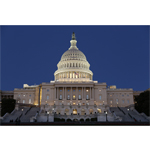 The U.S. Senate Special Committee on Aging released a bipartisan report yesterday suggesting ways to respond to spikes in drug pricing. The report comes after a months-long investigation spearheaded by Sens. Susan Collins (R-Maine) and Claire McCaskill (D-Missouri).
The U.S. Senate Special Committee on Aging released a bipartisan report yesterday suggesting ways to respond to spikes in drug pricing. The report comes after a months-long investigation spearheaded by Sens. Susan Collins (R-Maine) and Claire McCaskill (D-Missouri).
The senators wrote that massive spikes in drug prices are “gouging” patients and that lawmakers should respond. “We must work to stop the bad actors who are driving up the prices of drugs that they did nothing to develop at the expense of patients just because, as one executive essentially said, ‘because I can,’” Collins said in a statement.
The report focused its attention on companies that acquire a drug after the patent runs out and then move to increase the price. If these drugs have no other many competition, patients can face large out-of-pocket costs.
Senators suggested that lawmakers could propose a bill to speed up FDA approval for generic drugs to help them get to market and increase competition. The committee also wrote that the U.S. could temporarily import drugs from abroad to compete with a drug that they deem is unnecessarily overpriced.
Drug pricing reform has been a hot-button subject among lawmakers this year. Mylan (NSDQ:MYL)came under fire in August after reports showed that the Canonsburg, Penn.-based company raised the price of its emergency allergy epinephrine injector by 500% since it acquired the product in 2007 from Merck. CEO Heather Bresch pledged to expand the company’s patient assistance program and has launched a generic device that costs $300, half of what a 2-pack of EpiPens costs.
Mylan and Teva Pharmaceuticals (NYSE:TEVA) have both been named in an ongoing federal investigation into generic drug pricing and 1 day after Mylan launched its 1st generic EpiPen, attorney generals from 20 states filed a civil complaint against Mylan, Teva and 4 other generic drug makers.
“The hedge fund model of drug pricing is predatory, and immoral for the patients and taxpayers who ultimately foot the bill—especially for generic drugs that can be made for pennies per dose,” McCaskill said in a statement. “We’ve got to find ways to increase competition for medicines and ensure that patients and their families aren’t being gouged.”

